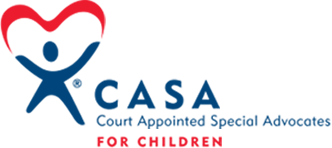What is childhood trauma?
Childhood trauma is often described as serious adverse childhood experiences (ACEs). The Centers for Disease Control and Prevention (CDC) defines ACEs as all types of abuse, neglect, and other potentially traumatic experiences that occur to people under the age of 18. Examples of ACEs include exposure to physical, emotional, or sexual abuse; physical and emotional neglect; and witnessing violence, serious mental illness, or substance misuse in the home. ACEs have profound psychological, physiological, and sociological impacts and can have negative, lasting effects on health and well-being.
What’s your ACE score? Take the quiz.
- ACEs are common. About 64% of U.S. adults reported they had experienced at least one type of ACE before age 18, and nearly 1 in 6 (17.3%) reported they had experienced four or more types of ACEs.
- Preventing ACEs could potentially reduce many health conditions. For example, by preventing ACEs, up to 1.9 million heart disease cases and 21 million depression cases potentially could have been avoided.
- Some people are at greater risk of experiencing one or more ACEs than others. While all children are at risk of ACEs, numerous studies have shown inequities in such experiences are linked to the historical, social, and economic environments in which some families live. ACEs were highest among females, non-Hispanic American Indian or Alaska Native adults, and adults who are unemployed or unable to work.
- ACEs are costly. ACEs-related health consequences cost an estimated economic burden of $748 billion annually in Bermuda, Canada, and the United States.
Download The Impact of Trauma & Toxic Stress in Children
Learn more about how toxic stress affects the brain here.
Can children heal from childhood trauma?
Children can heal from the effects of trauma and toxic stress if they develop healthy relationships with caring, reliable, safe, compassionate adults who guide them through the healing process. This includes helping children build resilience (the ability to respond to the challenges of life) and empathy (the ability to understand and share the feelings of others.) Resilience and empathy are developed over time by providing the child with opportunities to build mastery and develop effective strategies for managing stressors and adversity.
What is Trauma-Informed Care?
Trauma-informed care shifts the focus from “What’s wrong with you?” to “What happened to you?” Trauma-informed care (TIC) is an approach that assumes that an individual is more likely than not to have a history of trauma. Trauma-informed care recognizes the presence of trauma symptoms and acknowledges the role trauma may play in an individual’s life.
Trauma-informed care emphasizes respecting and appropriately responding to the effects of trauma at all levels.
The intention of trauma-informed care is not to treat symptoms or issues related to sexual, physical, or emotional abuse or any other form of trauma but rather to provide support services in a way that is accessible and appropriate to those who may have experienced trauma. When a trauma-informed approach is not used, the possibility for triggering or exacerbating trauma symptoms and re-traumatizing individuals increases.
DOWNLOAD THE IMPACT OF A TRAUMA-INFORMED APPROACH
What is TBRI®?
Trust-Based Relational Intervention, or TBRI®, is an attachment-based, trauma-informed intervention that is designed to meet the complex needs of vulnerable children. TBRI® uses Empowering Principles to address physical needs, Connecting Principles to meet attachment needs, and Correcting Principles to disarm fear-based behaviors. While the intervention is based on years of attachment, sensory processing, and neuroscience research, the heartbeat of TBRI® is connection.
“When you connect to the heart of a child, everything is possible.” – Dr. Karyn Purvis
Who is it for and who should use it?
TBRI® is designed to meet the complex needs of children who have experienced adversity, early harm, toxic stress, and/or trauma. Because of their histories, it is often difficult for these children to trust the loving adults in their lives, which often results in perplexing behaviors. TBRI® offers practical tools for parents, caregivers, teachers, or anyone who works with children, to see the “whole child” in their care and help that child reach his highest potential.
Why use it?
Because of their histories, children who have experienced trauma have changes in their bodies, brains, behaviors, and belief systems. While a variety of parenting strategies may be successful in typical circumstances, children with histories of harm need caregiving that meets their unique needs and addresses the whole child. That said, we’ve found that any child benefits from a nurturing, trusting relationship with a safe adult.
Where is it used?
TBRI® is used worldwide in homes, residential facilities, group homes, schools, camps, juvenile justice facilities, courts, with survivors of sex trafficking, in faith communities, courts, with law enforcement, in clinical practices, and beyond.
How do you do it?
If you’d like to get started right away, we encourage you to visit and explore the Karyn Purvis Institute of Child Development (KPICD) site for more information and resources. Reading the KPICD’s book, The Connected Child, or viewing any of its DVDs are both great places to start. TBRI® 101: A Self-Guided Course in Trust-Based Relationships also provides nearly eight hours of instruction on TBRI®. Through its parent resource page, the KPICD offers a few ideas for parents to start learning how to implement trust-based parenting in a variety of ways. Professionals can apply to attend the Institute’s TBRI® Practitioner Training.
Download TBRI® Frequently Asked Questions
Where can I read about it?
Purvis, K. B., Cross, D. R., & Sunshine, W. L. (2007). The Connected Child: Bringing hope and healing to your adoptive family. New York, NY: McGraw-Hill.
Purvis, K. B., Cross, D. R., Dansereau, D. F., & Parris, S. R. (2013). Trust-based relational intervention (TBRI®): A systematic approach to complex developmental trauma. Child & Youth Services, 34(4), 1-28.
Purvis, K. B., Cross, D. R., & Pennings, J. S. (2009). Trust-based relational intervention: Interactive principles for adopted children with special social-emotional needs. Journal of Humanistic Counseling, Education, and Development, 48, 3-22.
Purvis, K. B., Parris, S. R., & Cross, D. R. (2011). Trust-based relational intervention: Principles and practices. In Rosman, E. A., Johnson, C. E., & Callahan, N. M. (Eds.), Adoption factbook V (pp. 485-489). Alexandria, VA: National Council for Adoption.
How can I get more information or assistance?
TBRI® training is available and provided by CASA Child Advocates of Montgomery County. Please reach out to TBRI® Director Jennifer Reitmeyer at Jennifer@CASASpeaks4Kids.com.
© 2023 Texas Christian University. All rights reserved. Karyn Purvis Institute of Child Development
College of Science & Engineering | Department of Psychology
Email: child@tcu.edu | Phone: 817.257.7415

